Just Cause Wrong Target Read online
Page 2
CHAPTER 2
MEMORIES
Auckland, NEW ZEALAND
With his annual contract up for review, T.A. felt he needed a pause to clarify where he was going in his life. Professionally he needed to figure out if what he was working at, with his current employers, was right for him. Too many of his economic and investment research reports, submissions and opinions had been ignored or rejected through the petty bickering and jealousies of office politics; or worse, with minor adjustments claimed as the research of a director.
In the early days he had forecast the Russian invasion of Chechnya from the economic and social indicators. He warned that the criminal activities and corruption driven by blackmail within Russia was costing that government billions causing aid and foreign investment to disappear.
The Russians could not control the Chechnyan led Russian Mafia within Russia, so the alternative was to hit the home bases, the real root of the Russian problem. Only the Chechnyan bombings within Russia provided an excuse for Russian retaliation and a display of force. For once, freedom of the press worked for the Russians in gaining popular support against the Chechnyan terror attacks.
The Russian leaders hoped full scale military action with public support might diminish, and the Chechnyans' economic blackmail, extortion, and threats against foreign investors within Russia fail.
T.A. had accurately forecast the overthrow of Suharto in Indonesia and independence for East Timor. His forecast of a swing to the right in the politics in Austria had also been correct. He knew that would cause economic and political problems for the European Economic bloc. His early predictions of the Greek, Spanish and Italian economic crisis had all been laughed off.
More recently his forecasts of the collapse of selected financial institutions proved correct
All of these reports were ignored. His investment bank employer suffered losses equally with their competitors instead of being quarantined from the effects by timely changes in policy.
Secondly, after his incarceration and escape from Apuao Grande during the New Peoples’ Army (NPA) uprising in the Philippines during his holiday there, he felt there were many mysteries he wanted to resolve.
Soon after his recovery twelve months ago, his gymnasium work-outs, running and squash had made him feel both mentally alert and physically satisfied. Recently, the weekly and very competitive squash games against his workmates and the gymnasium work-outs had become boring.
He felt physically fit but his mind was in a state of ennui. He needed some excitement in his life, just not to the extreme as had happened on Apuao Grande. Excitement, with stability, should not be hard to find.
The women he had been dating lacked the femininity he sought, and were more into playing mind games than developing either a full relationship or a proper friendship. He felt the pleasant company of a feminine woman in his life, however temporary, might help.
His thoughts seemed to naturally progress to a return visit to the Philippines. He could obtain temporary company there, then let it lapse after his departure. It was also the only place he could find some answers to the questions he had about what really happened on the island of Apuao Grande over twelve months ago.
The original start date of his current contract had been delayed while he physically recovered from the hostage incident the previous year. The small island resort in San Miguel Bay to the east of Luzon had dominated so much of his thinking over the twelve months, and it had affected the quality of his work.
Within a couple of weeks of returning to Sydney after leaving the hospital in Manila; even though he felt physically fully recovered, the nightmares were mentally draining. Thankfully, the bad dreams had diminished. Now, they were not as bad, or as frequent.
Yet, the missing gaps had increased his desire to learn what happened to the other hostages after he had escaped from the tennis court where they had all been held.
Local newspapers, at the time, had reported widely, but very generally, on the nationwide incidents of the takeover of several Philippine tourist resorts, and holding of foreign hostages by the Philippines New People's Army (NPA), the armed wing of the Communist Party. But none gave very much detail of events in any specific localities.
He felt quite peeved that he had not been approached by a newspaper to recount his story, or even asked for an interview by a TV station. He was at one of the three resorts where things had gone awry for the NPA and he was the only one who had escaped during the NPA control. Many of the American and European tourists, with considerably less to tell, had been paid enormous sums.
He had managed to dine out occasionally on the strength of his personal experiences. Some of it he had self-censored to retain secrets he felt were better left unsaid. His reason for that was not even clear in his own mind. He was protecting something or someone. He did not know why.
With so many things he did not understand about the Apuao Grande Island episode, he wanted to uncover the truth. But to do so would mean he too would have to reveal many things he felt needed to keep secret, and to himself. Some questions, wrongly put, might reveal he knew more than the authorities had been able to uncover. Or they might uncover what the authorities did not want known.
He had spent many hours researching newspapers and internet reports. They were too generalised, too broad, and all without specifics.
Apuao Grande had only been mentioned because it was the last place retaken by Government forces. Yet it seemed to him that more had happened on that island than anywhere else. Even that which was reported was mostly inaccurate. He could not correct what had been written. One report in Manila had referred to him as a source of information. Much of that he had lied about when interviewed while in hospital, to protect who or what, he did not know. It was too late now to put the record straight.
None of the newspapers had reported anything about the involvement of foreign mercenaries, mostly of Arab extraction. They were certainly involved on his island.
Another major mystery had been the letter he had received while recuperating in the Manila hospital immediately after being evacuated from Apuao Grande. It was from Singapore and signed by a Father Patrick O'Reilly. Somehow he felt it was from Pater, the mysterious ex-pat he had spent so much time with.
He had often thought about Pater during his recovery. Pater had rescued him while he had wandered aimlessly through the rain forest after escaping from the tennis court. The same Pater who was normally so in control of all his actions, then losing it all to attack two M16 carrying Arabs with a knife when they threatened the life of an owner-less dog. The same Pater he vaguely recalled seeing bleeding very badly after fighting with one of the Arabs, before T.A., weakened by his own wounds fighting the second Arab, slipped into unconsciousness.
Though Pater was only one of several ex-pats living on the island, it seemed there was more to him than was public knowledge. On the Island he was passing himself off as a construction engineer. T.A. felt sure the island resort management was aware that there was more to Pater's activities. They seemed to aid Pater in maintaining his anonymity. To T.A., even Pater's aura emitted some mystery which would have been impolite to have asked about.
The second letter T.A. received at his Sydney home was equally mysterious. There were inferences in the letter that only he would understand and might give a clue to the identity of the writer. Though that too was signed by a Father Patrick O'Reilly, T.A. was unsure if it came from Pater because official reports, after the siege, listed Pater as being dead, despite the absence of a body.
T.A., though sad that Pater was probably dead, he was not fully convinced after the letters. But the need for the evasiveness of the letters confused him. T.A. had not given the full story as he knew it, or of Pater's involvement in what had happened. Both letters had referred to things that he was sure only Pater and he knew about.
And, because both the letter he received in hospital in Manila and the one received in Sydney were signed by Father Patrick O'Reilly, T.A. was curious why he had been
singled out for this correspondence. T.A. had never heard of Father Patrick O'Reilly. They might just as well have been anonymous. Without directly asking, the letters hinted that it would be appreciated if T.A. limited his explanation of what had happened on Apuao Grande.
There were also other ghosts too he felt he had to exorcise. The people he needed to talk to would never reveal what they knew, if anything, by telephone or by mail. He would have to talk with them face to face. Also, he was not certain who might know something. He could not learn anything sitting behind a desk in Sydney; he would have to return to the Philippines. Therefore he had three purposes in going there. To learn what had really happened; to enjoy himself on some beautiful beach; and just as in getting back on the horse, so to speak, after a bad fall, to prove to himself that he still had enough confidence to travel alone without fear.
His employers would have to understand he needed an extended holiday.
**********

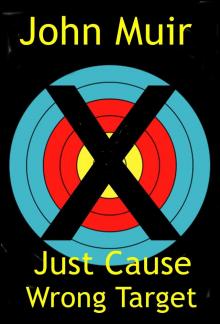 Just Cause Wrong Target
Just Cause Wrong Target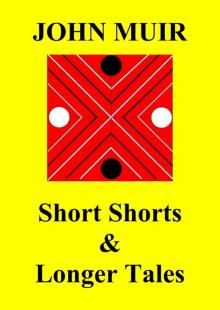 Short Shorts & Longer Tales
Short Shorts & Longer Tales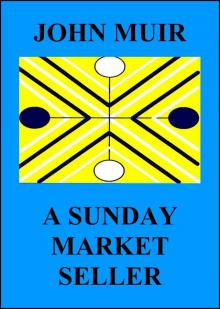 A Sunday Market Seller
A Sunday Market Seller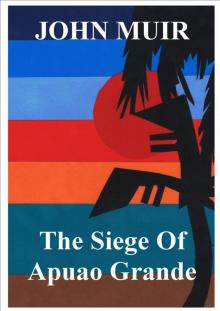 The Siege Of Apuao Grande
The Siege Of Apuao Grande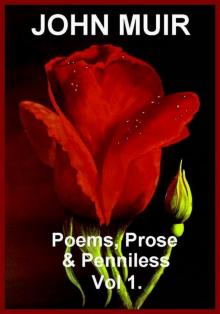 Poems, Prose & Penniless Vol 1.
Poems, Prose & Penniless Vol 1. My First Summer in the Sierra
My First Summer in the Sierra